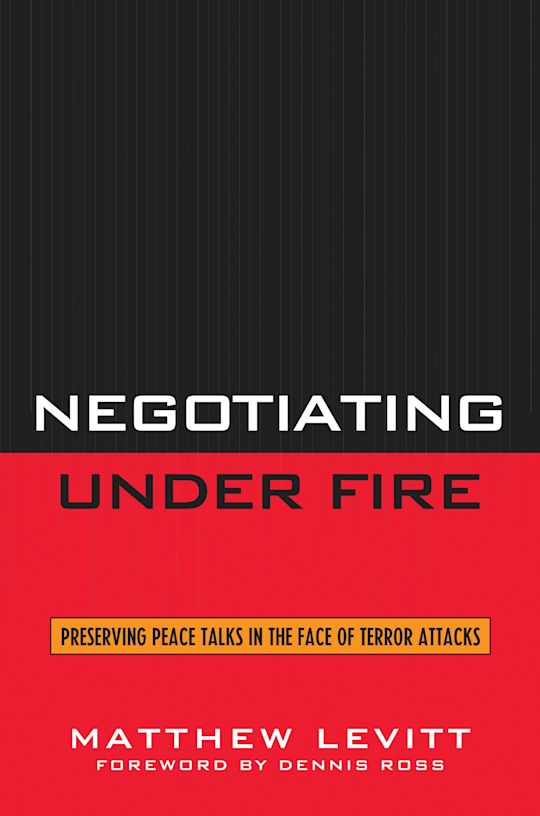- Home
- ACADEMIC
- Politics & International Relations
- Politics - Other
- Negotiating Under Fire
Negotiating Under Fire
Preserving Peace Talks in the Face of Terror Attacks
Negotiating Under Fire
Preserving Peace Talks in the Face of Terror Attacks
You must sign in to add this item to your wishlist. Please sign in or create an account
Description
The impact of severe security crises on peace negotiations represents one of the most significant facets of modern conflict resolution theory to remain under-researched. It also stands out as the factor most likely to derail inherently sensitive negotiations. Negotiating Under Fire explores how such crises between two nations impact diplomatic initiatives between those countries. How do the negotiators' willingness and ability to continue influence the outcome? Do the levels of legitimacy, trust, and confidence within and between the parties change in such strained negotiations?
Through a detailed analysis of three critical moments in the Oslo peace process-the Baruch Goldstein Hebron massacre of 1994, the Nachshon Wachsman kidnapping and execution of 1994, and the nine-day string of suicide bus bombings carried out in Israel in March of 1996-the author concludes that insurgents or those hostile to peace talks can and do undermine negotiations.
Table of Contents
Acknowledgments
Chapter 1. Introduction
Chapter 2. The Hebron Massacre
Chapter 3. The Wachsman Abduction and Murder
Chapter 4. The 1996 Suicide Bus Bombings
Chapter 5. A Focused Comparison of the Goldstein, Wachsman, and 1996 Bombings Crises
Chapter 6 Conclusion: Toward a Theory of Crisis Management under Conditions of Ongoing Negotiations
Product details
| Published | Aug 28 2008 |
|---|---|
| Format | Ebook (PDF) |
| Edition | 1st |
| Extent | 360 |
| ISBN | 9780742565661 |
| Imprint | Rowman & Littlefield Publishers |
| Publisher | Bloomsbury Publishing |
About the contributors
Reviews
-
Negotiating Under Fire is a most useful guide for policymakers and diplomats dealing with violence during negotiating processes. Inevitably, opponents of negotiations will resort to violence and intimidation in order to stop the diplomatic process, and these actions are usually treated sui generis and haphazardly by governments. By analyzing major disruptions of the Israeli-Arab negotiations and drawing some lessons on how to cope with and overcome such attempts to stop negotiations, Matthew Levitt has done a real service in the cause of successful diplomacy.
Daniel C. Kurtzer, Princeton University
-
As Israel's Chief Negotiator with Syria in the mid 1990's and as Israel's Ambassador to Washington during the same period, I was fortunate to be able to play a role in the effort to resolve the Arab-Israeli conflict or parts of it and unfortunate in witnessing the manner in which terrorist acts committed by Arab and Israeli fanatics and cool headed radicals was one of the most important reasons for the collapse of this effort. Matthew Levitt's book written with a sharp pen of an expert analyst sheds new light on and offers fresh insights into the interplay between the effort to resolve the conflict and the successful terrorist challenges which undermined it. It is mandatory reading for anyone interested in the history of Arab-Israeli relations or, more broadly, in conflict resolution theory and practice.
Itamar Rabinovich, Tel Aviv University
-
The book is extensively documented. . . .Recommended.
Choice Reviews
-
An interesting addition to literature on crisis management.
Middle East Journal
-
Matthew Levitt's book reminds us of the dangers to peace negotiations created by extremist violence and the need to anticipate these crises and ensure that diplomacy is not derailed. More importantly, Levitt proposes useful steps that policy makers on all sides can deploy to prepare for crises and defuse them, allowing the quest for peace to prevail.
Ann L. Estin, president, American Task Force on Palestine



































